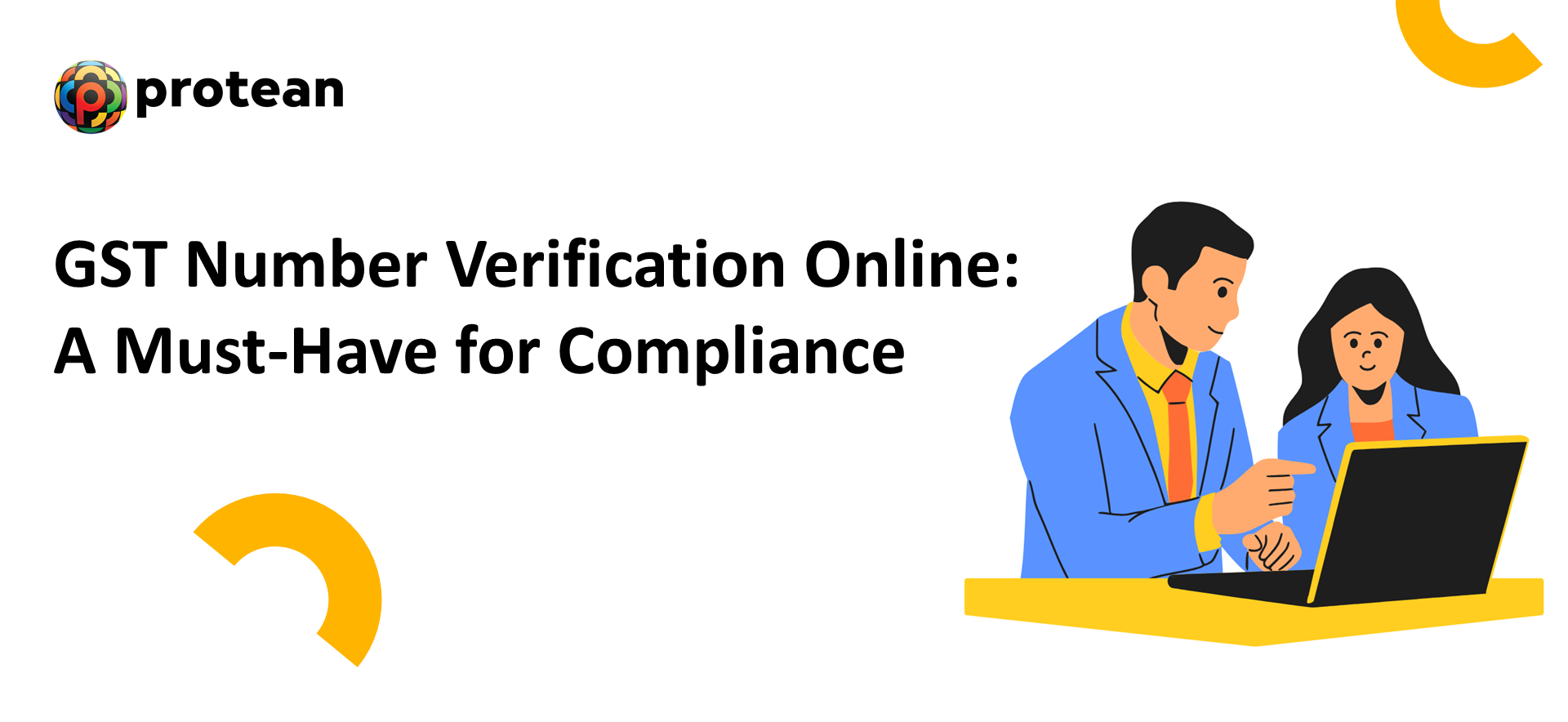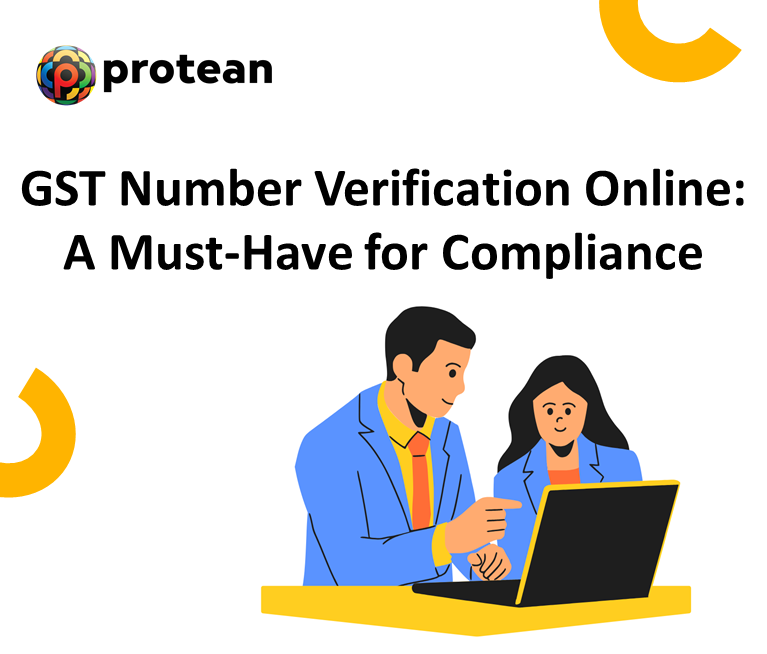In the unified and digitized tax regime of GST in India, verifying a supplier or customer’s GST registration details has become a mandatory legal and operational step for businesses. The days when overlooking the validity of a trading partner's GST Identification Number (GSTIN) was merely an administrative oversight are over. Today, failure to perform timely and accurate GST number verification online exposes businesses to severe financial penalties, audit risks, and the significant loss of vital input tax credits.
Let’s explore why GST number verification has transitioned into an operational necessity, detailing the core risks of non-compliance and providing a clear framework for protecting your business's financial integrity.
Why GST Verification is Mandatory
The Goods and Services Tax Identification Number is a unique 15-digit alphanumeric code assigned to every registered taxpayer in India. It serves as the business’s primary identity under the GST regime. While its purpose is to facilitate tax collection and input tax credit tracking, the integrity of GSTINs is essential to maintaining transparency within the B2B ecosystem. The GSTIN on the invoice must be authentic, active, and correct for the transaction to be legally valid and for the buyer to claim an Input Tax Credit (ITC) when businesses transact.
| Also Read: GST Verification: From Manual Hassles to Automated Efficiency with API Integration |
Though not legally mandatory, verifying GST numbers online is a critical compliance step for fraud prevention and ensuring valid ITC claims.
1. The Fight Against Shell Entities and Fake Invoicing
The digital efficiency of GST has, paradoxically, created new avenues for sophisticated tax fraud. Fly-by-night operators and shell companies often register with the sole intent of passing on fraudulent Input Tax Credit (ITC) without any actual supply of goods or services.
- Fraudulent ITC: These entities issue fake invoices bearing a valid-looking but ultimately compromised or suspended GSTIN. When a legitimate business unknowingly claims ITC based on these fraudulent invoices, it becomes an unwilling participant in tax evasion.
- Government Crackdown: Tax authorities, utilizing advanced data matching and AI-driven tools, are aggressively identifying and suspending these fake registrations. When a tax officer investigates a fraudulent supplier, they trace the entire chain of recipients. If your business is found to have claimed ITC from a supplier whose GST number verification status was inactive or cancelled at the time of the transaction, that ITC will be reversed, resulting in a 100% loss of the credit, plus interest and heavy penalties.
In this high-stakes environment, proactive GST number verification acts as your primary legal shield.
2. Safeguarding Your Input Tax Credit (ITC)
For any business, the ability to claim ITC is the core financial advantage of the GST system. Without it, the tax structure breaks down, and the tax burden on the final consumer increases (the cascading effect).
The legal provisions around ITC claim place the burden of proof entirely on the recipient (the buyer). You can only claim ITC if your supplier:
- Is legally registered and their GST number verification status is Active.
- Has uploaded the corresponding invoice details in their GSTR-1 return.
- Has paid the due taxes to the government.
Failure to verify a supplier’s GST number online increases your risk of ITC reversal, which can significantly impact working capital. If a vendor's GSTIN is inactive, suspended, or simply incorrect, the invoice is invalid, and your ITC claim is blocked, leading to immediate cash flow disruption.
| Also Read: Why GST Online Verification is Crucial for Vendor |
The Hidden Costs of Non-Verification
While the loss of ITC is the most obvious financial hit, failing to make GST number verification online a routine practice invites a spectrum of hidden financial and operational risks:
1. Financial Risk: Penalty and Reversal of Credit
The most concrete danger is the reversal of ITC under the relevant GST rules. If an audit reveals that you have availed credit from a non-compliant or fraudulent supplier, the entire amount of credit will be added back to your tax liability.
- Minimum Penalty: Tax authorities can impose a minimum penalty of 10% of the tax amount due or ₹10,000, whichever is higher, for genuine errors.
- Tax Evasion Penalty: For deliberate tax evasion (which dealing with a non-compliant vendor can be construed as), the penalty can be 100% of the tax amount due.
2. Operational Risk: Reconciliation Nightmare and Time Loss
Non-verification complicates every step of the monthly compliance cycle.
- GSTR-2B Mismatch: The GSTR-2B report automatically generated by the government reflects the ITC you are eligible for, based on what your suppliers have reported. If a supplier uses a wrong or invalid GSTIN for your business, or if their status is suspended, a mismatch will appear. Resolving this mismatch consumes valuable time, ties up accounting resources, and delays the finalization of GSTR-3B.
- Invoice Invalidity: Dealing with an unverified or inactive GSTIN can render related invoices non-compliant or invalid, potentially jeopardizing your vendor’s ITC claim and harming your business reputation.
3. Reputational and Credibility Risk
In today’s data-transparent economy, a business is judged by the integrity of its supply chain.
- Vendor Onboarding: Major corporations and financial institutions now make real-time GST number verification online a mandatory step in their vendor onboarding process. Failure to demonstrate a robust verification process for your own business or being linked to fraudulent entities can lead to being blacklisted by large clients.
- Access to Finance: Banks and NBFCs frequently rely on a company's verified GSTIN and filing history when assessing creditworthiness for loans. A non-compliant transaction history or multiple ITC reversals flagged by data checks can instantly reduce access to working capital and business finance.
The Rise of Automated GST Verification Tools
For businesses handling a high volume of transactions, manual, one-by-one verification is inefficient. This has led to the widespread adoption of third-party GST verification tools and GST APIs that offer:
- Bulk Verification: Checking thousands of GSTINs simultaneously.
- Real-time Integration: Embedding the GST number verification check directly into ERP, accounting, or vendor management software.
- Automated Status Monitoring: Continuously tracking the status of your established vendors and flagging any changes (e.g., suspension or cancellation) in real-time.
These automated solutions turn GST number verification online from a periodic chore into a seamless, integrated compliance workflow.
To conclude
The business environment under GST has matured. It is a system built on trust and enforced through data matching and automated compliance mechanisms. In this ecosystem, the responsibility to confirm the validity and compliance status of every trading partner is an intrinsic part of good corporate governance.
The requirement for timely and proactive GST number verification online is no longer a suggestion; it is a fundamental requirement for securing your Input Tax Credit, mitigating the risk of fraud, and avoiding costly legal scrutiny. Businesses ensure they are dealing exclusively with legitimate, compliant entities, protecting their finances, and upholding the integrity of the unified tax system by integrating GST number verification into every step of the procurement and payment process. In the digital GST age, due diligence is the cost of doing business, and it is a price well worth paying.

